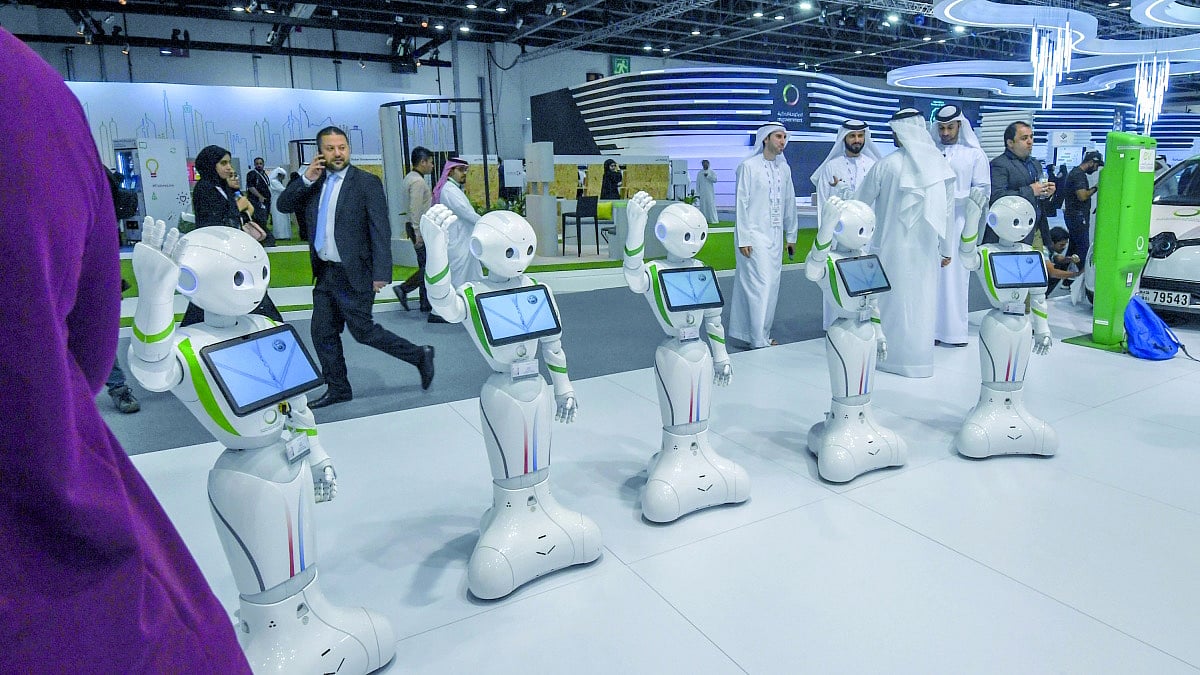TRENDS and Cambridge Artificial Intelligence collaborate to empower youth in AI
Program targets outstanding high school students aged 16 to 18 from UAE, GCC countries

The TRENDS Research and Advisory Center has announced a knowledge partnership with Cambridge Artificial Intelligence to deliver an intensive summer program at the University of Cambridge, designed to prepare the next generation of AI leaders from the UAE and the Gulf region.
Organized by the TRENDS International Training Institute, the program targets outstanding high school students aged 16 to 18 from the UAE and GCC countries who have a passion for science, technology, and innovation, and who aspire to contribute to the development of knowledge- and technology-driven solutions that serve the future of the region and the world.
The ten-day program, held on the University of Cambridge campus during July and August 2026, offers a comprehensive educational experience that includes lectures and workshops led by Cambridge academics and experts, in addition to field visits to laboratories and AI-focused startups.
The program also features sessions on AI ethics and responsible innovation, as well as practical activities where students design innovative technology solutions as part of a final graduation project presented at the end of the program.
According to Sultan Al Rubaei, Head of the TRENDS International Training Institute, the initiative marks a significant step in transferring world-class academic expertise to the region and providing students with exceptional learning opportunities in a prestigious academic environment designed to global standards.
Artificial Intelligence: Redefining the Future of Training and Skills Development
In recent years, artificial intelligence (AI) has revolutionized all aspects of life—particularly in the fields of training and personal development. Individuals and institutions can now leverage AI technologies to design smarter, more personalized training programs that directly enhance individual and professional capabilities.
How has AI transformed the training landscape? What are the key intelligent applications used for personal skills development? What benefits does this transformation offer, and what challenges might it face?
1. What is Artificial Intelligence in Training?
AI in training refers to the use of intelligent algorithms and applications to analyze learner behavior, understand individual needs, and deliver personalized learning content that matches each learner’s abilities and pace. This includes:
Recommending suitable courses based on current skills
Evaluating performance and providing instant feedback
Simulating real-world scenarios through virtual and augmented reality
Using chatbots to offer 24/7 learning support and guidance
2. Applications of AI in Training and Personal Skills Development
Personalized Learning Programs
Using data analytics, AI can identify each individual’s preferred learning style, recommending customized content that strengthens their skills and addresses weaknesses.
Interactive and Simulated Training
Through virtual reality (VR) and AI, learners can enter realistic simulated environments—such as leadership, negotiation, or time management scenarios—allowing them to practice safely and effectively.
Performance and Progress Analysis
AI tracks trainee performance and interaction with content, enabling trainers to adapt their approach and provide timely support.
Enhancing Communication Skills
AI-based tools analyzing speech and writing—such as grammar correction or pronunciation enhancement—help refine linguistic and communication skills.
Self-Training via Chatbots
AI-powered bots enable interactive training conversations, allowing users to practice job interviews or public speaking while receiving instant feedback for improvement.
3. Benefits of Using AI in Training
Personalized learning experiences instead of one-size-fits-all content
Time and cost efficiency compared to traditional training models
Continuous learning opportunities, anytime and anywhere
Higher engagement and motivation through dynamic, interactive content
Accurate assessment and evaluation of trainee performance, improving program quality
4. Key Personal Skills Enhanced by AI
Critical thinking and problem-solving
Negotiation and persuasion
Time and self-management
Leadership and teamwork
Emotional intelligence and effective communication
5. Challenges of Implementing AI in Training
The need for robust digital infrastructure, such as fast internet and smart devices
Concerns over replacing human interaction in the learning process
Privacy and data protection, requiring strict safeguards
The limited availability of Arabic-supported AI content, as many tools remain English-focused
6. The Future of Training with AI
The future points toward fully integrated AI-driven learning, where training programs become more adaptive, efficient, and lifelong—essential in an era of rapid technological and professional change. Institutions that invest today in smart learning environments will cultivate a more capable, flexible, and innovative workforce—directly enhancing productivity and creativity.
Artificial intelligence is not merely a technological tool—it is a strategic partner in human development. Its application in training and personal skills growth opens new frontiers in learning, providing individuals with more impactful and personalized experiences. The key challenge remains finding the right balance between AI innovation and human interaction, ensuring that learning remains both intelligent and deeply human.
Sign up for the Daily Briefing
Get the latest news and updates straight to your inbox
Network Links
GN StoreDownload our app
© Al Nisr Publishing LLC 2025. All rights reserved.